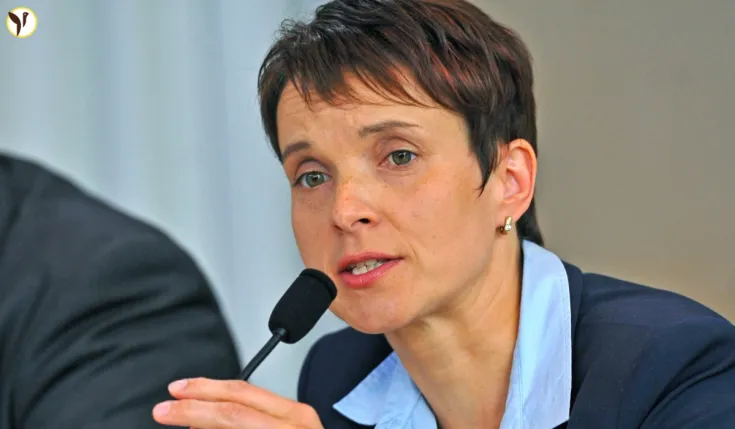Frauke Petry: A Pivotal Figure in German Politics
Frauke Petry, a name synonymous with controversy in German politics, is once again making headlines. This former co-leader of the Alternative for Germany (AfD) party announced on May 5th her intention to launch a new political party for the 2026 election. This bold move represents a dramatic shift from her past, offering a fascinating glimpse into the evolving dynamics of German politics. Her new venture promises an economically liberal platform, a stark contrast to the AfD's increasingly extremist trajectory, but the shadow of her controversial past continues to loom large.
From AfD to Economic Liberalism
Petry's new party, currently unnamed, aims to champion economic growth and strengthen Germany's ties with Western nations. She envisions a party that fosters entrepreneurship and business, presenting itself as a "free, state-independent proposal" positioned between the established Christian Democratic Union (CDU) and the far-right AfD. The party's planned 2026 launch will welcome diverse, non-partisan citizens. This signals a clear break from her previous far-right associations.
- Economic Focus: The party will prioritize policies designed to boost economic growth and create a more business-friendly environment.
- Western Alignment: A strong emphasis on strengthening cultural and political ties with Western democracies will form a cornerstone of the party platform.
- Broad Appeal: Petry seeks to attract voters disillusioned with both mainstream parties and the AfD's increasingly radical wing.
The AfD's Shadow: Extremism and Controversy
Petry's decision to leave the AfD comes amidst growing concerns about the party's extremism. Germany's domestic intelligence agency, the BfV, has placed the AfD's far-right "The Wing" faction under surveillance, classifying it as a right-wing extremist movement. Petry has publicly criticized this radicalization, specifically naming figures like Björn Höcke and Andreas Kalbitz. However, her own past association with the AfD, particularly her previous anti-immigration stances and allegations of Russian ties, remain significant points of contention.
- Extremism Concerns: The AfD's increasing embrace of extremist views fuels ongoing debate and scrutiny.
- Past Allegations: Petry's own history within the AfD, including allegations of Russian influence and hardline immigration policies, continues to generate controversy.
- Legal Battles: Petry faces ongoing legal challenges, further complicating her political landscape and public image.
Petry's Uncertain Future
Frauke Petry's political journey has been anything but straightforward. Her hardline stance on immigration during her time with the AfD thrust her into the spotlight. The failure of her subsequent Blue Party and ongoing legal battles underscore the challenges she faces in navigating German politics. Her new venture represents an attempt to redefine her political legacy, but its success hinges on her ability to attract voters while managing her controversial past. The question remains: can she successfully garner support from those disillusioned with both the mainstream and the extremist fringes?
Conclusion: A New Chapter, Uncertain Outcome
Frauke Petry's move to establish a new economically liberal party marks a significant turning point in German politics. While her departure from the AfD reflects a distancing from extremism, her controversial past will undoubtedly continue to shape public perception. The success of her new venture remains uncertain, but her actions certainly add a compelling new chapter to the ever-evolving narrative of German political life. Only time will tell if she can successfully carve a new path for herself and attract a substantial following.






